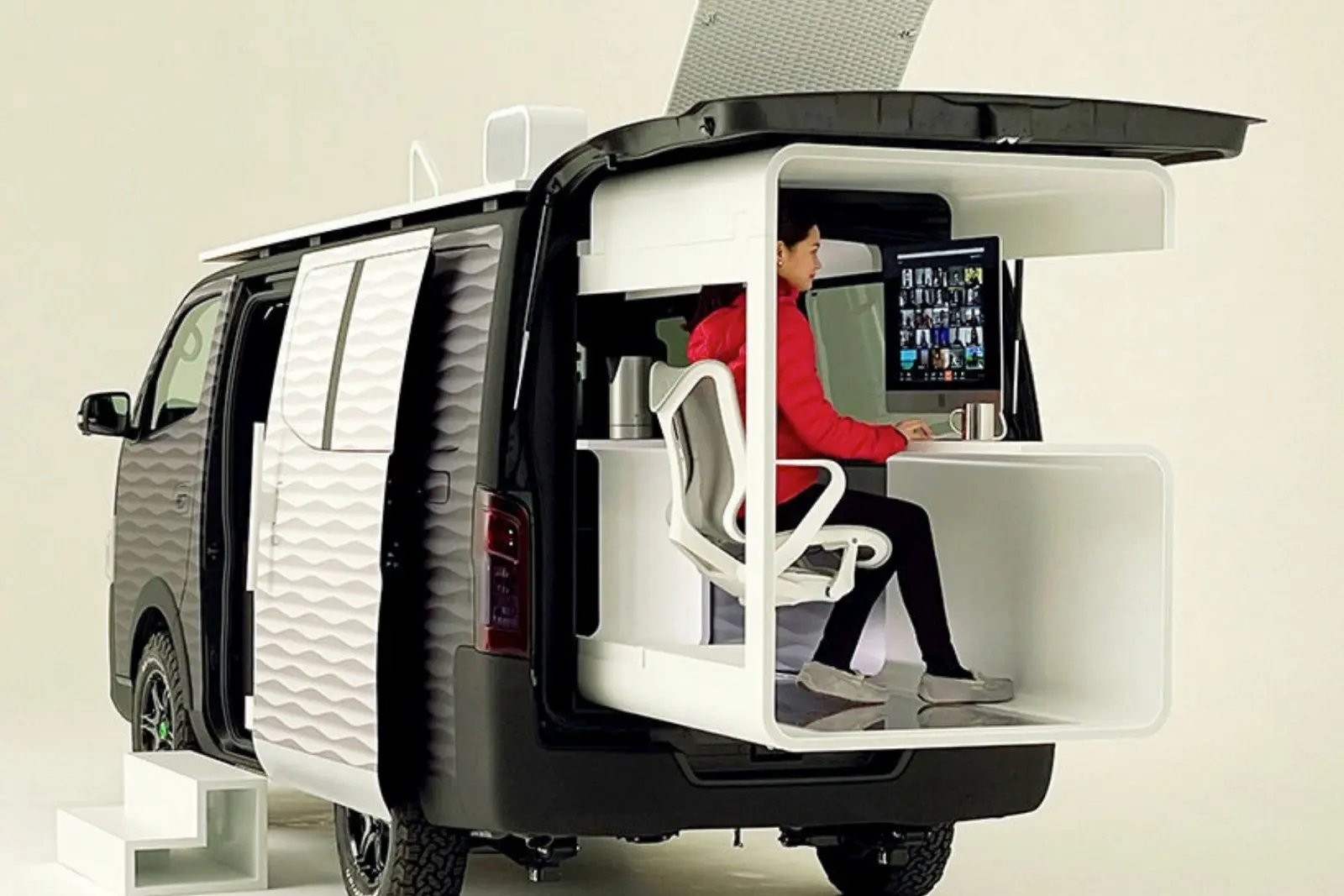By Richard Robertson
Australian motorhome design has long mirrored American trends, which is no surprise given that for years the brand name synonymous with motorhomes here was copied (without consent!) from America. ‘Big motorhomes for a big land’ seems to have been the philosophy and so, as much physical size and interior space as possible was the mantra. That still holds true today for many buyers, hence the growth in large motorhomes and caravans.
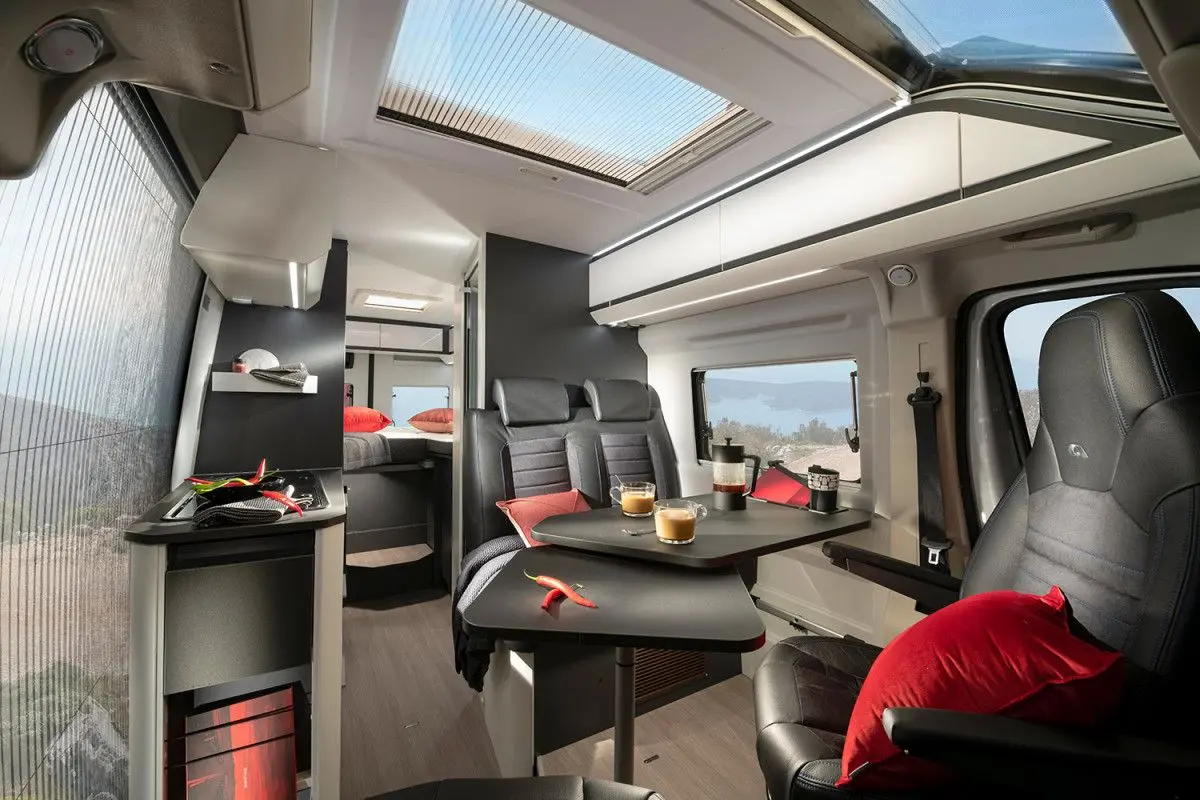
Whilst that’s okay if it’s what you want, the smaller an RV the more thought the designer needs to put into making it practical and liveable. It’s good to see European RVs making (admittedly limited) inroads into the local market, because by necessity, Europeans are past masters at taking advantage of every nook and cranny.
Looking around shows over many years it appears the designers for many companies work from a check-list of inclusions, but don’t really understand their buyers nor how they actually use the vehicles. If they did, things like microwaves two metres above floor level (or at floor level), beds that block bathroom access when travelling and bathrooms with no storage for even a single bottle of shampoo simply wouldn’t happen.
With this in mind, it has been interesting to look at two new entrants in the van-conversion motorhome space: EmuRV and Red Centre Caravans. Both company’s products come from experienced caravan manufacturers and both convert Fiat Ducato vans into good looking compact motorhomes (remember, a motorhome has a bathroom, unlike a campervan). Although similar on first appearance, their layouts reveal subtleties that will influence life onboard and make them appeal to different buyers.
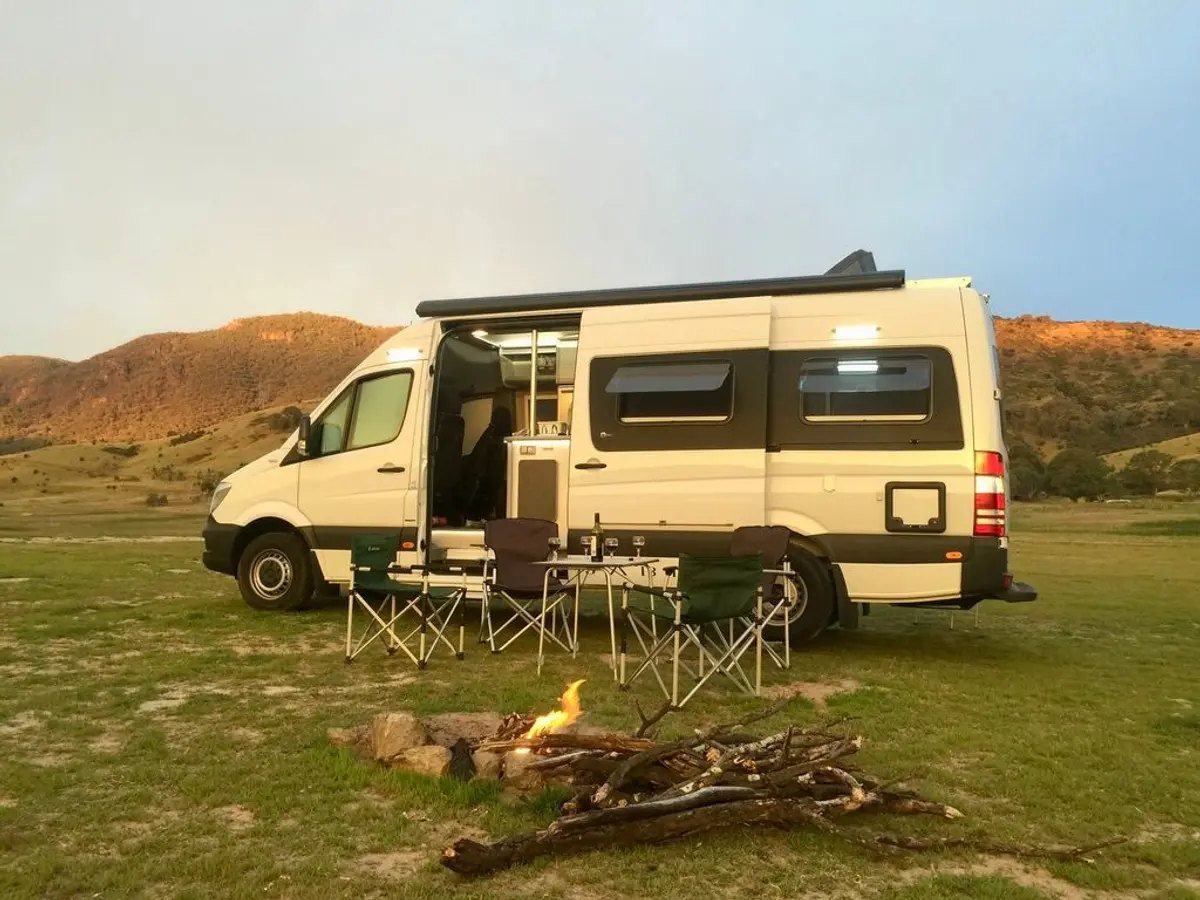
It’s worth remembering that the smaller the RV the more time you’re likely to spend living in the great outdoors. Van-conversions aren’t intended for long-term living inside, but when the weather turns you need to know the space you have is practical and won’t drive you to distraction, especially if it’s prolonged. Ultimately there are only so many ways you can arrange things inside a box: Everything is a compromise and physical dimensions determine possible outcomes, but that’s where clever or just thoughtful design comes in. Like so many things in life, sometimes that only comes from experience…
Vans Go!
Vans go well as motorhomes and some are works of art. Good design makes them priceless, so are either of these two destined for greatness? Read on!
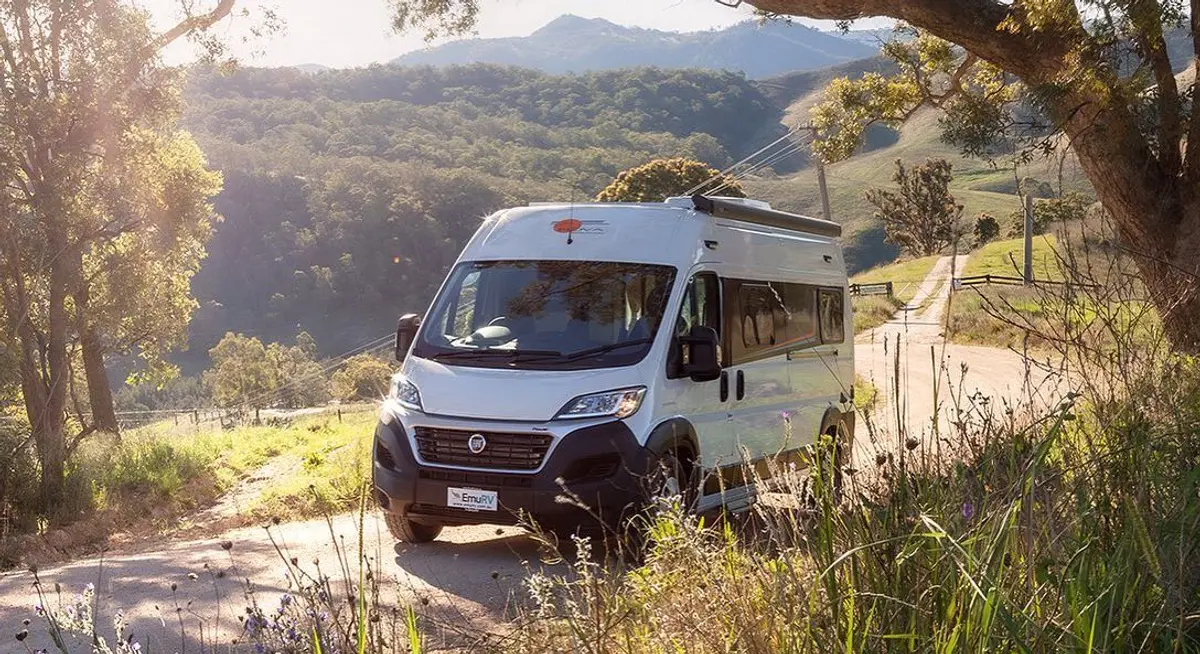
Starting with EmuRV’s E2S long-wheelbase (LWB) Fiat Ducato, we see a classic van-design layout: Cab seats up-front, the kitchen and bathroom in the middle and a pair of long seats (with storage underneath) that double as the lounge/dinette and convert either to single beds or can be joined to make something approaching a king-size bed. There’s also a full-length aisle, allowing things like bikes or watersports equipment to be carried internally.
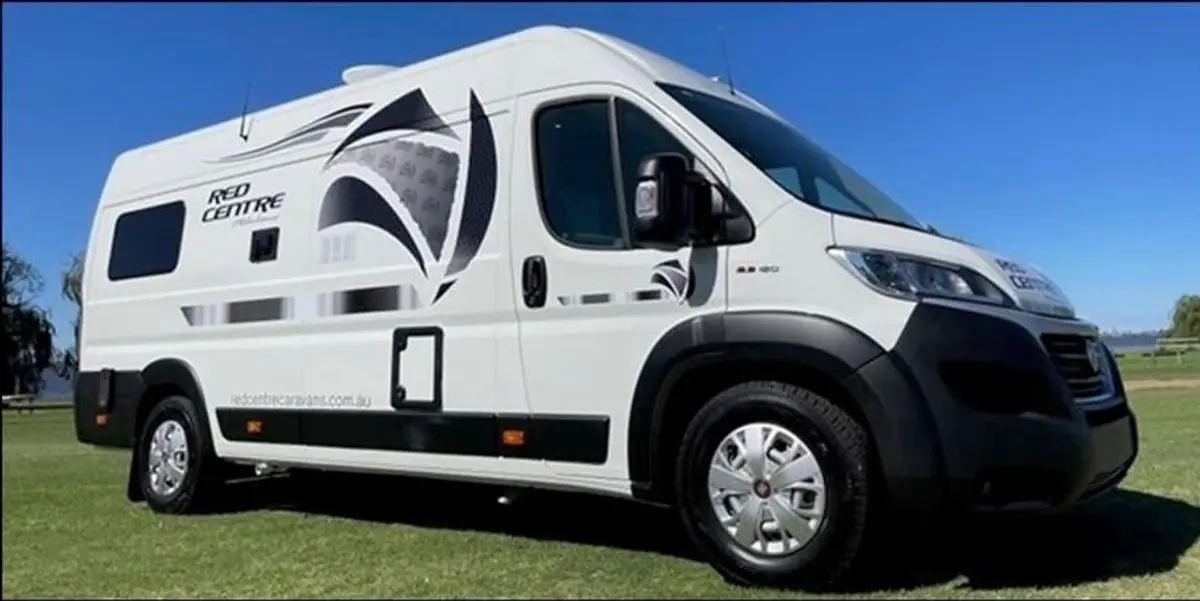
Red Centre has a different design in its extra-long wheelbase (XLWB) Fiat Ducato, which is a handy 365 mm (14.4”) longer than the E2S (there’s also an XLWB E2S with the same layout as its shorter sibling). Red Centre’s van also has the cab seats/mid-kitchen and bathroom layout, but with a permanent east-west double bed across the back. This sacrifices full walk-though access but provides considerable storage underneath.
Which is better? That depends on your preferences and needs, so let’s take a closer look at them.
Living Room
On face value both designs really only seem to differ in the sleeping arrangement. However, each has a number of pros and cons that affect practicality.
EmuRV’s E2S provides what effectively are one-and-a-half seating areas. The passenger’s cab-seat fully swivels, but the driver’s is largely blocked by the fridge/microwave cabinet. Given the cab seats are invariably the most comfortable for reading or watching TV, that’s a bugger. On the plus-side you have the long lounge/dinette seats, but their short backrest cushions – needed to make up the centre section of the big bed – are flat and provide no real back support. That’s fine for a short time like when dining (the E2S has a freestanding table) or stopping for coffee, but it’s not comfortable for long periods. Of course you can stretch out and put-up your feet, but without a proper back rest that can also become uncomfortable after a while.
Red Centre’s design allows both seats to fully swivel, while each has its own small table (the driver’s flips-up from the bathroom wall while the passenger’s is removable and needs to be set-up each time). This makes good use of the cab as part of the living space, although there’s not actually much table space. It’s also the only seating/dining area, so it’s a good thing those seats are comfy!
Sleeping Room
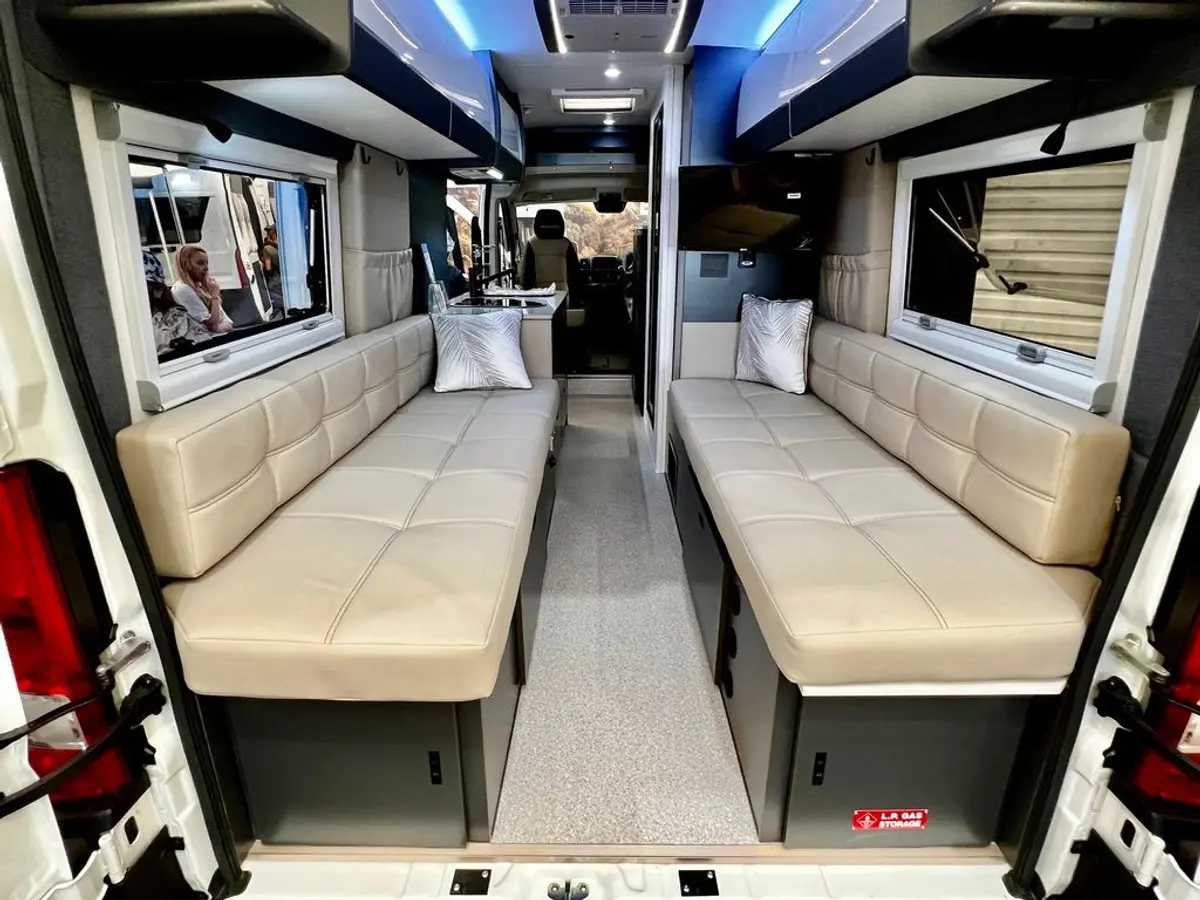
Single or a double bed? That is the question.
For flexibility you can’t beat the E2S, which allows anything from two friends to travel together to a spacious bed for couples to snuggle-up in on a cold night. The downside is you have to make the beds up each night, pack them away each morning and store the bedding. You’re also sleeping on vinyl-covered foam cushions, or several if using the big bed.
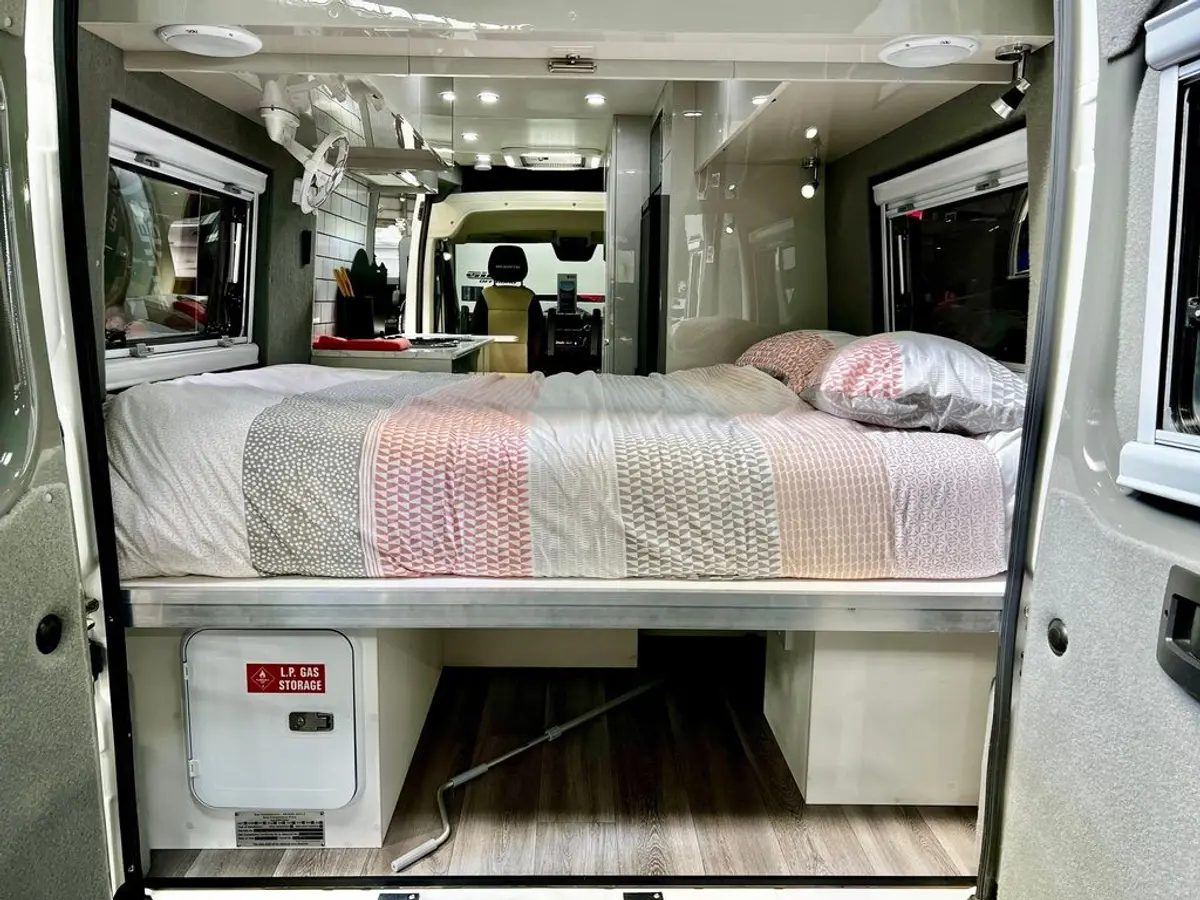
Red Centre’s east-west double is permanent, comes with a proper innerspring mattress and the bedding remains in place. It’s also a handy place for leaving jackets and other bulky items during the day. The downside is that although the Fiat Ducato is the widest van on the market (about 90 mm or 3.5” wider than a Sprinter) and has straight sides rather than curving, you really need to be shorter than 183 cm (6’) to sleep stretched out. That’s because your pillow takes up space, while the window frames at both ends also intrude (and make sitting-up in bed difficult). Some Euro designs with an east-west bed, like the Adria Twin, don’t have bed-end windows, thus taking advantage of extra interior space. This makes an east-west van bed best suited for the ‘vertically enhanced’, although not having the usual big bedroom windows seems to freak-out some people.
Breathing Space
Speaking of windows, traditionally, vans have opening windows down the sides and fixed windows in the back doors. The reason for this is twofold: firstly, vans generally come with fixed windows in their back doors and secondly, it reduces cost. To date, Horizon Motorhomes is the only manufacturers that comes to mind that has always fitted opening windows in the back doors. So, it’s great to see both EmuRV and Red Centre are fitting them!
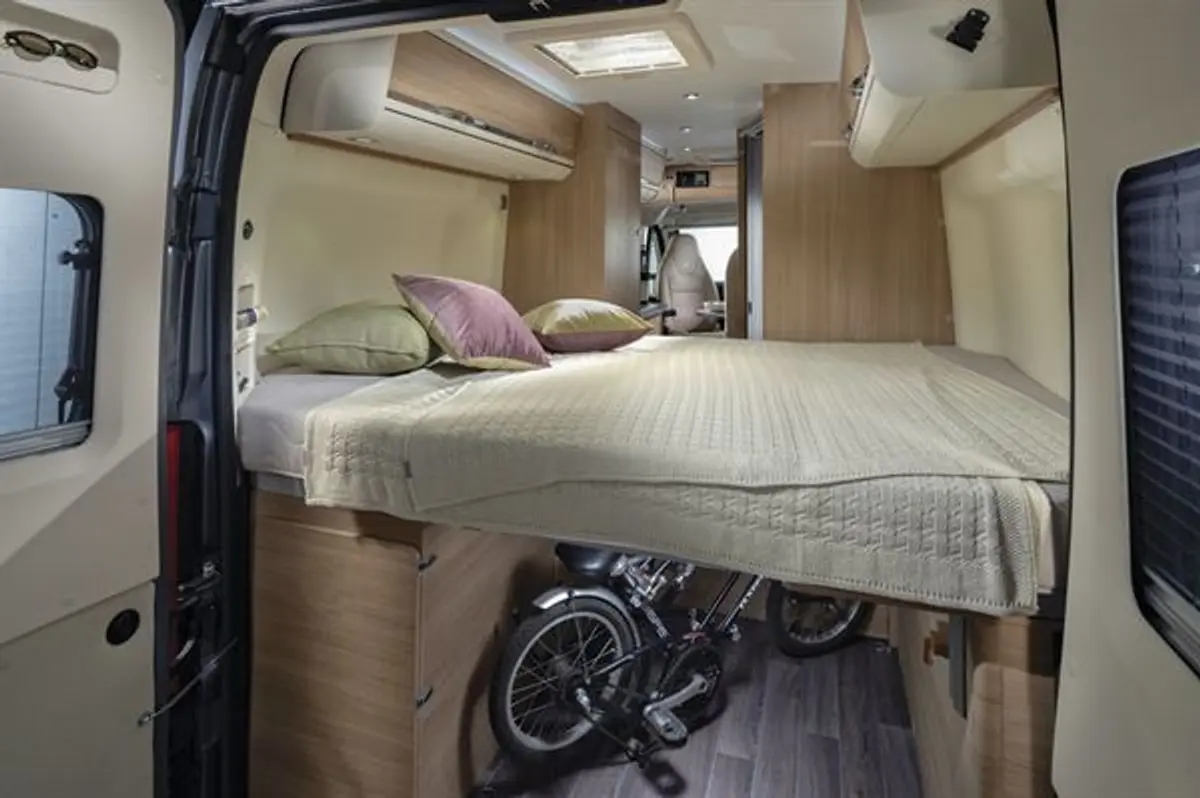
The aforementioned Adria Twin partially compensates for the lack of bed-end windows by also having opening windows in the back doors. Australian-delivered models have an air-conditioning unit above the bed, but a roof hatch would be better. That’s what it has in Europe, but Australians are obsessed with aircon. The reality is, unless you intend using caravan parks most of the time you’re better off with a large roof hatch and a couple of 12-volt Scirocco fans. Combined with opening windows in the back doors and those up-front, they provide good air circulation and are perfect for free camping.
Both the E2S and Red Centre vans include roof-top aircon standard and it looks good on the spec-sheet. However, there’s a reason seasoned players in this market, like Horizon Motorhomes, don’t make it standard: Many van buyers just want to free camp or travel in the cooler months, so air-conditioning adds unnecessary expense, weight and complication.
Bathing Space & More
Almost all van-conversion motorhomes have ‘wet’ bathrooms, which means an all-in-one cubicle in which the toilet and everything else gets wet when you shower. It’s the least desirable bathroom arrangement but almost inescapable in vans of this size as it takes-up the least amount of floorspace. To be fair, you spend very little time in a van motorhome’s bathroom and so it’s a reasonable trade-off.
Both the E2S and Red Centre’s bathrooms are pretty basic, but the E2S gets a corner handbasin, which is invaluable. Sadly, neither has even the tiniest cabinet for toiletries – a small but in-practice, annoying oversight.
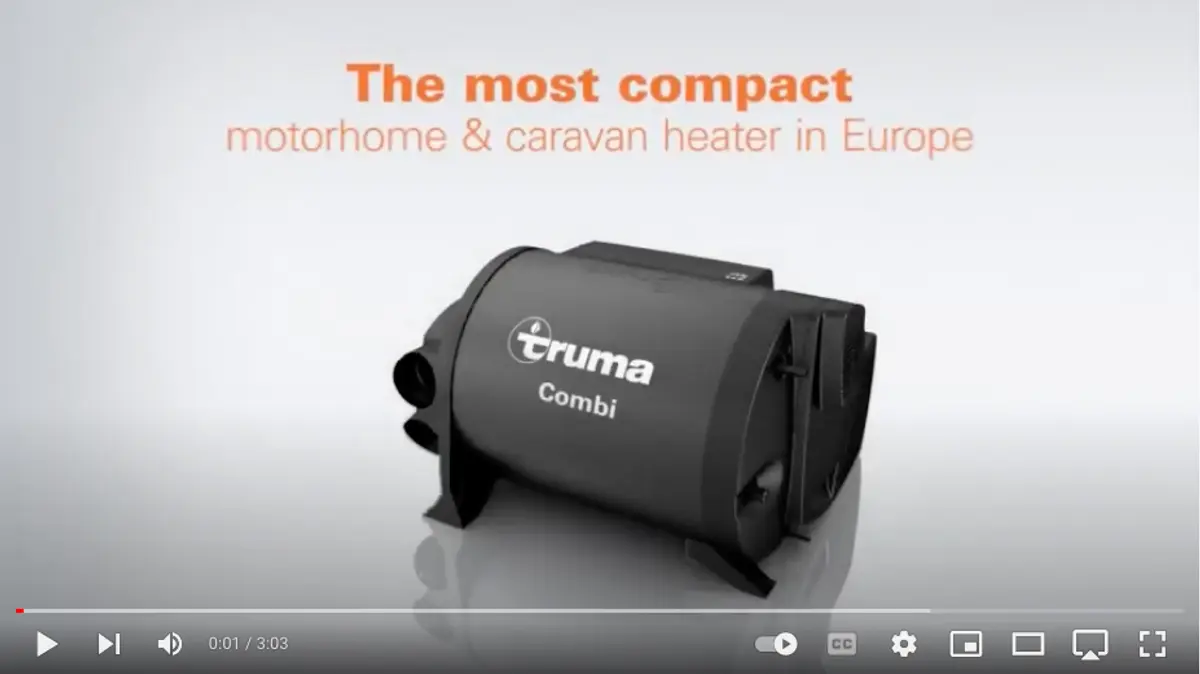
However, the E2S wins big time because it has an outlet from the Truma Combi central heating system, which also provides the van’s hot water. This is a brilliant standard inclusion because it not only allows year-round free camping (there’s also an outlet under one of the beds), it lets you dry-out the bathroom and towels after use, plus use the bathroom as a drying room for wet clothing and footwear. In a van-conversion motorhome such a standard set-up is rarer than hen’s teeth…
Other Thoughts
From a styling perspective, EmuRV’s E2S feels upmarket inside thanks to its curved, glossy cabinetry, colour palate, concealed LED strip lighting and leather-look dinette upholstery. By contrast, Red Centre’s van, with its square cabinetry, fabric upholstery and marine carpeted walls has a lot of grey and is much more conservative/traditional. There’s no right or wrong in this regard, but the E2S has more sizzle.
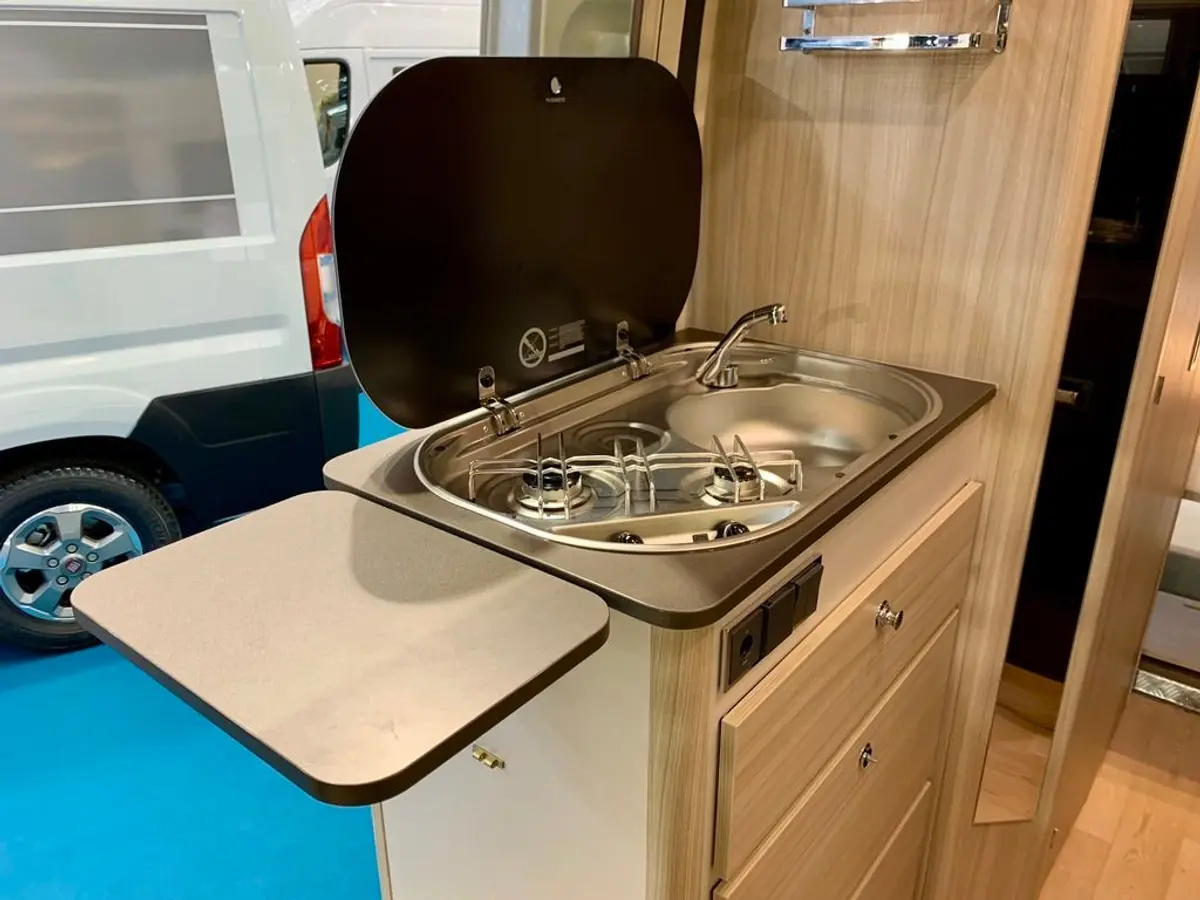
Kitchen size is also worth a mention: Both have good sized kitchens, especially compared to many European van-conversions, like the one pictured. Interestingly, from experience we’ve come to realise you don’t need a lot of kitchen space in a van as most cooking happens outdoors, unless the weather’s bad, and many people eat out. A microwave is also pretty useless unless you’re in a caravan park, so it could also go on the options list and the space utilised for storage. It seems the Europeans understand this, hence their tiny kitchens and clever cupboard arrangements.
So?

So, which of these two has the best design? Both designs bring fresh takes on what are proven but, in reality, years-old floorpans. It’s also great to see some more styling pizzaz creeping in to this end of the market.
EmuRV’s E2S looks and feels the most modern of the two, but only has a single usable swivelling cab seat. Its sleeping arrangement is the most versatile, however, and it can carry long internal loads. It’s worth noting EmuRV also makes the E4S on the XLWB Ducato, which features a full four-place dinette up front and an east-west bed at the rear.
Red Centre’s van, on the other hand, ticks the cab seating box and has a proper bed with great storage underneath. But its bathroom is the most basic and the east-west bed limits user height. The company says other models are in the wings and has mentioned moving into full size coachbuilt motorhomes, so watch this space.
Ultimately, neither van breaks new ground nor offers design innovations that are out of the box – unlike Hymer’s concept van, pictured above! Both ‘build’ on proven floorplans and will therefore easily find buyers who will be more than satisfied with the layouts, not to mention the comprehensive list of standard inclusions.
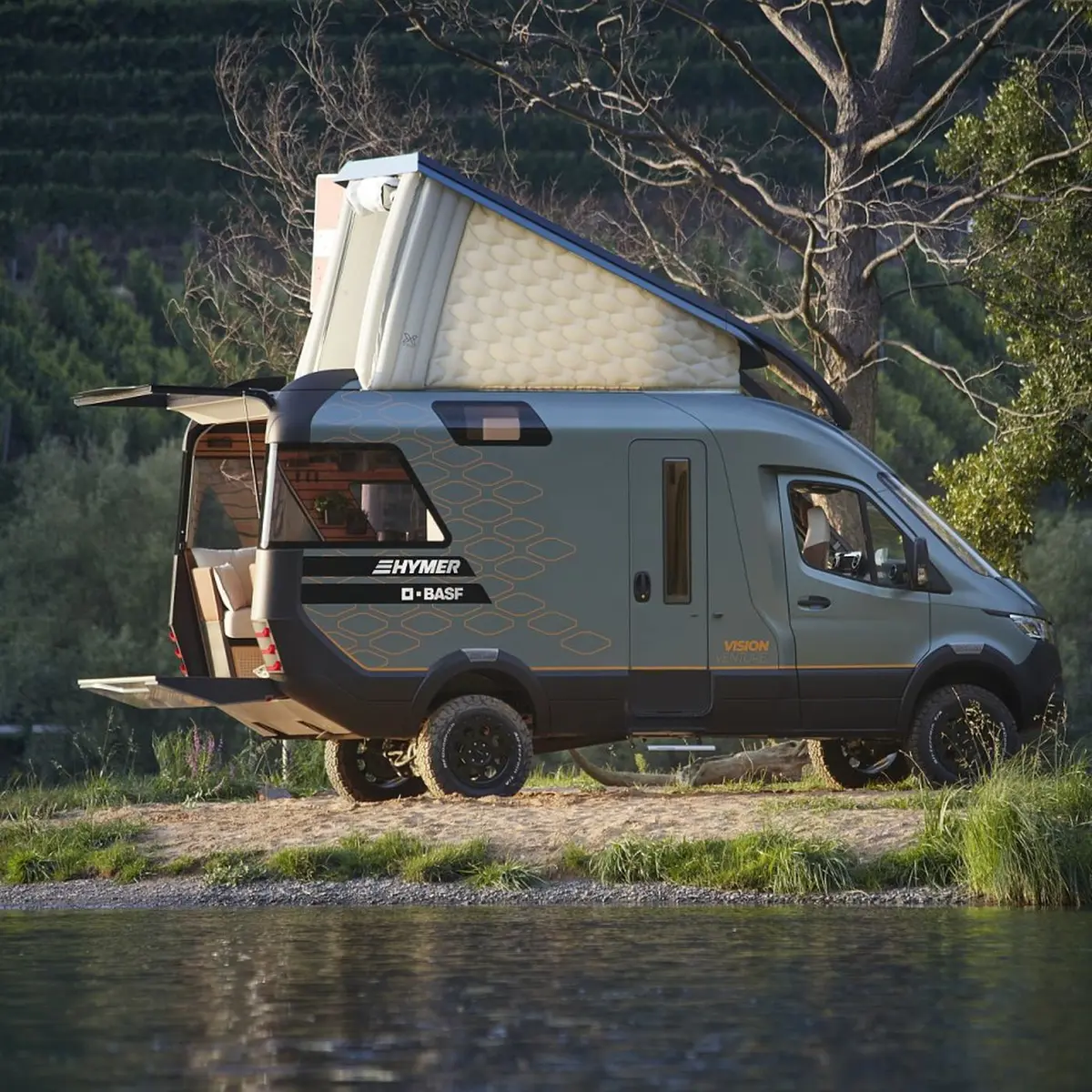
Of course, these aren’t the only contenders in what's becoming quite a crowded end of the RV market. Van-conversion motorhomes are hot business and the old adage 'the more the merrier' rings true for buyers. If you're in the market, check out all the contenders and carefully consider the designs. It's not so much ‘buyer beware’ as ‘buyer be aware’: The better the design the better the buy…

